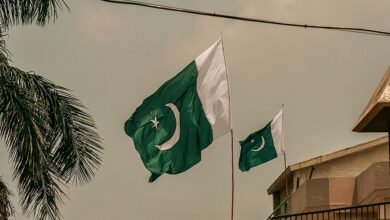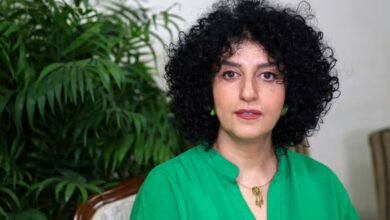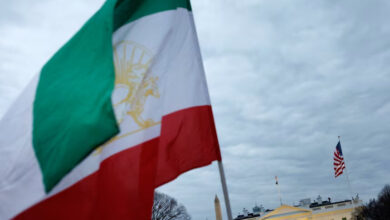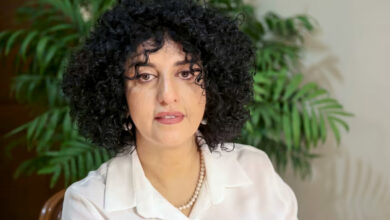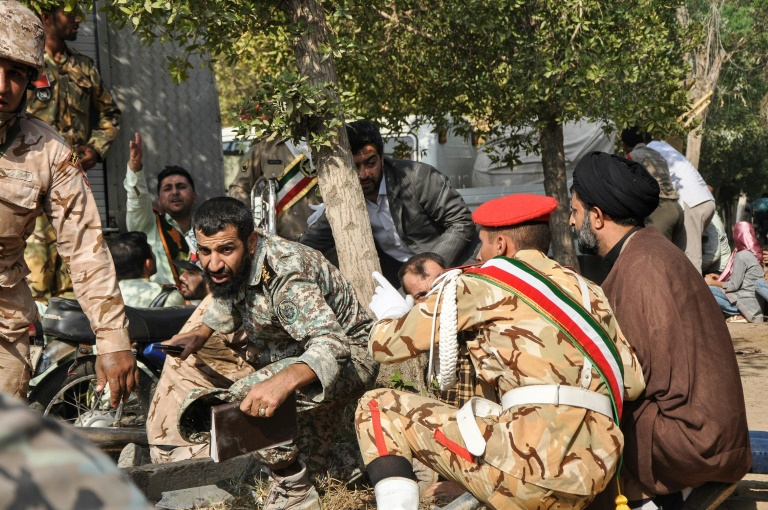
Iranian President Hassan Rouhani on Sunday appeared to blame Arab separatists for a deadly attack on a military parade, accusing an unnamed US-backed Gulf state of supporting them.
Tehran also summoned diplomats from Denmark, the Netherlands and Britain for allegedly hosting members of the group suspected of links to Saturday’s attack near the Iraqi border, which left at least 29 people dead.
Four militants attacked a parade commemorating the beginning of the 1980-88 Iran-Iraq war, launched by Baghdad, in the southwestern city of Ahvaz, capital of Khuzestan Province.
Officials and an eyewitness said the gunmen were dressed in Iranian military uniforms and sprayed the crowd with gunfire using weapons they had stashed in a nearby park.
The Islamic State (IS) jihadist group claimed responsibility for the rare assault.
But from early on, Iranian officials saw an Arab separatist movement, the Ahwazi Democratic Popular Front (ADPF) or Al-Ahwazi, as the main suspect.
“It is absolutely clear to us who has done this, which group it is and to whom they are affiliated,” Rouhani said on state television on Sunday, shortly before leaving Tehran for the UN General Assembly in New York.
“Those who have caused this catastrophe … were Saddam’s mercenaries as long as he was alive and then changed masters,” he said, referring to late Iraqi dictator Saddam Hussein.
“One of the countries in the south of the Persian Gulf took care of their financial, weaponry and political needs.”
“All these little mercenary countries we see in this region are backed by America. It is the Americans who incite them,” he said.
Foreign Minister Mohammad Javad Zarif said the attack had been carried out by “terrorists recruited, trained, armed & paid by a foreign regime”.
London-based opposition channel Iran International TV on Saturday aired an interview with Yaqoub Hor Altostari, presented as a spokesman for ADPF, indirectly claiming responsibility for the attack and calling it “resistance against legitimate targets”.
Diplomats summoned
Iran in response summoned diplomats from Denmark, the Netherlands and Britain to complain about them “hosting some members of the terrorist group” and “double standards in fighting terrorism,” the foreign affairs ministry said.
The British charge d’affaires “was told that it is not acceptable that the spokesman for the mercenary al-Ahwazi group be allowed to claim responsibility for this terrorist act through a London-based TV network,” said the ministry’s spokesman, Bahram Ghasemi.
“It is expected that (the Danish and Dutch) governments hand over the perpetrators of this attack and anyone related to them to Iran for a fair trial,” he added.
State television gave a toll of 29 dead and 57 wounded, while official news agency IRNA said those killed included women and children who were spectators at the parade.
Three attackers were killed at the scene and the fourth died later of his injuries, said armed forces spokesman Brigadier General Abolfazl Shekarchi.
IS had claimed the attack via its propaganda mouthpiece Amaq and, according to intelligence monitor SITE, said the attack was in response to Iranian involvement in conflicts across the region.
The Revolutionary Guards accused Shiite-dominated Iran’s Sunni arch-rival Saudi Arabia of funding the attackers, while Iran’s supreme leader Ayatollah Ali Khamenei also blamed Iran’s pro-US rivals.
Khuzestan was a major battleground of the 1980s war with Iraq and it saw unrest in 2005 and 2011, but has since been largely quiet.
Kurdish rebels frequently attack military patrols on the border further north, but attacks on government targets in major cities are rare.
On June 7, 2017 in Tehran, 17 people were killed and dozens wounded in simultaneous attacks on the parliament and on the tomb of revolutionary leader Ayatollah Ruhollah Khomeini — the first inside Iran claimed by IS.

